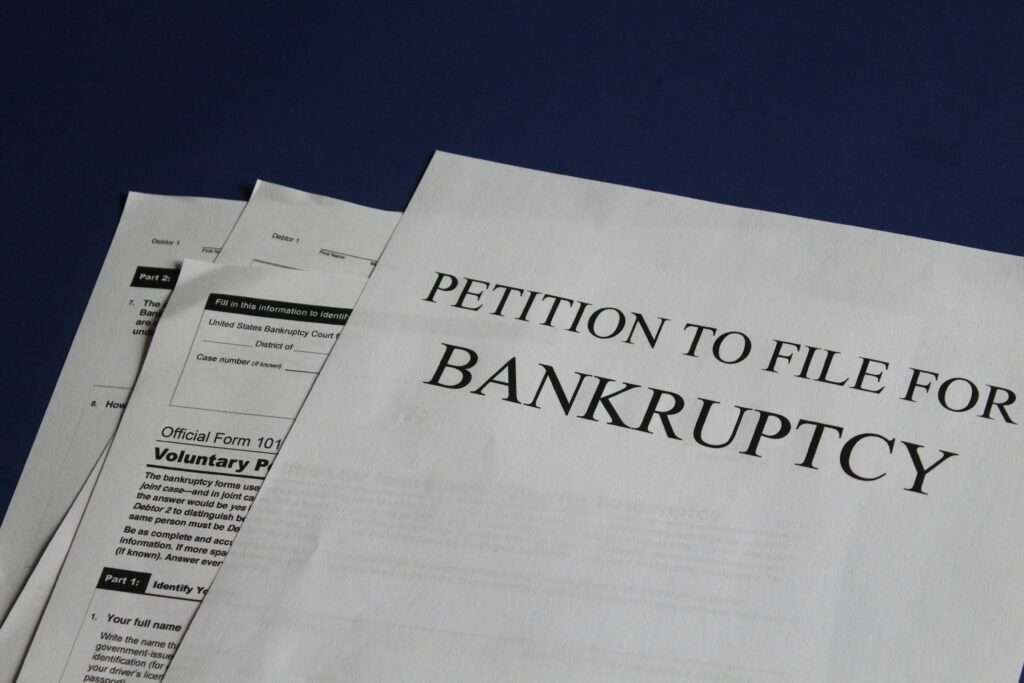If you’re juggling multiple debts, you might be looking for a fresh start. Debt consolidation and bankruptcy are two paths to getting a handle on your debt.
Debt consolidation can help you better manage what you owe. Bankruptcy can help you discharge some debts entirely.
Knowing the trade-offs to each of these approaches can help you decide which route fits your situation best.
Understanding Debt Consolidation
Debt consolidation involves rolling several debts into one monthly payment. You do this by taking out a new loan or opening a credit line to pay off your existing balances. Ideally, the new loan or credit line has a lower interest rate.
For example, suppose that you have several high-interest credit card balances. You might get a personal loan or a 0% APR balance-transfer credit card to pay them all off.
This leaves you with just one monthly payment instead of many. The goal is to simplify your finances and potentially save money on interest, allowing you to pay off debt faster.
Understanding Bankruptcy
Bankruptcy gives you a legal way out when your debts feel unmanageable. You file in federal court and choose one of two paths:
- Chapter 7: A trustee sells your nonexempt assets to pay creditors. This option discharges most of your remaining unsecured debts and gives you a fresh start.
- Chapter 13: You propose a repayment plan to pay all or part of your debts over three to five years. You keep your property, and a trustee handles your monthly payments to creditors
Does bankruptcy clear all debts? Not always.
Some obligations are non-dischargeable, meaning you remain responsible for them even after bankruptcy. Examples of such debts include:
- Child support and alimony
- Most student loans
- Recent tax debts
- Government fines
- Debts from fraudulent activity or certain unpaid government-backed loans
If your largest balances include student loans or child support, you’ll continue making those payments even after bankruptcy wipes out other debts.
Debt Consolidation: What to Know
People often wonder whether it makes more sense to consolidate debt or to file for bankruptcy. Each option works differently and the right choice likely depends on your financial situation.
To understand which path might be right for you, it helps to look at how each one functions and what it might mean for your finances going forward.
Debt consolidation typically involves combining multiple debts into a single new loan or account. This can simplify repayment. Depending on the terms you receive, it also might reduce the total interest you pay.
If you choose this option, you will still owe the full amount of your debt. The only difference is that you will now manage just one payment, hopefully at a lower interest rate.
Bankruptcy: What to Know
Bankruptcy can be an option for those who are drowning in debt and simply do not see a path forward to pay off the debt.
Unlike debt consolidation, bankruptcy can actually eliminate some or all of the debt you owe, depending on the nature of the debt.
However, bankruptcy can take a major toll on your credit, possibly damaging your record for many years. For this reason, many experts urge folks to think long and hard before turning to bankruptcy to eliminate debts.
Considering Debt Settlement vs. Debt Consolidation
Debt settlement is another option beyond consolidation and bankruptcy. This involves trying to negotiate with creditors to accept less than the full amount owed.
For instance, if you have a $10,000 credit card balance, the creditor might agree to settle for a lump-sum payment of $5,000 and forgive the rest. Whether a creditor agrees—and under what terms—can vary widely.
Debt consolidation and debt settlement serve different purposes. Consolidation may be a better fit if you’re still able to make full payments and want to simplify your repayment process.
On the other hand, debt settlement is sometimes pursued when you’re struggling to keep up with payments and want to avoid bankruptcy. Debt settlement might be worth considering if:
- You’re unable to pay your full balances
- You’ve fallen behind on payments on some or all of your accounts
- You’re exploring alternatives to bankruptcy
However, debt settlement has potential drawbacks. Some creditors may not agree to settle, and the process can take time. Missed payments before or during negotiations may also affect your credit.
If debt settlement doesn’t work out, bankruptcy may still end up on the table.
Debt Solutions That Fit Your Situation
Debt consolidation vs. bankruptcy are two very different paths, each with its own challenges and benefits.
Consolidating your debt keeps you on the road of repayment. This option may give you an easier and faster route to paying off debt than you have now.
Bankruptcy gives you a chance to hit the reset button on much of your debt. However, it comes with a higher long-term cost to your credit.
Neither choice means failure. Instead, both debt consolidation and bankruptcy are tools you can use to regain your financial footing and achieve a more solid financial base.
The content provided is intended for informational purposes only. Estimates or statements contained within may be based on prior results or from third parties. The views expressed in these materials are those of the author and may not reflect the view of SmartSpending. We make no guarantees that the information contained on this site will be accurate or applicable and results may vary depending on individual situations. Contact a financial and/or tax professional regarding your specific financial and tax situation. Please visit our terms of service for full terms governing the use this site.

